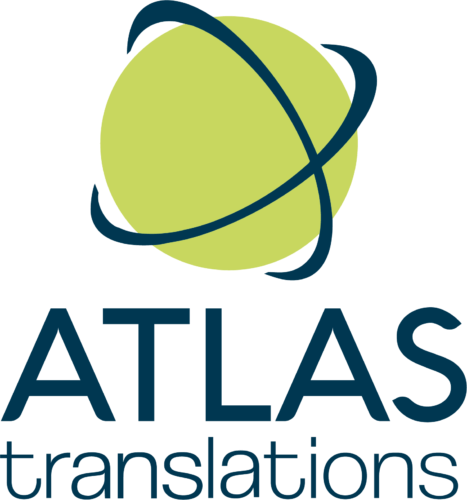7 Mistakes to Avoid When Choosing a Translation Partner
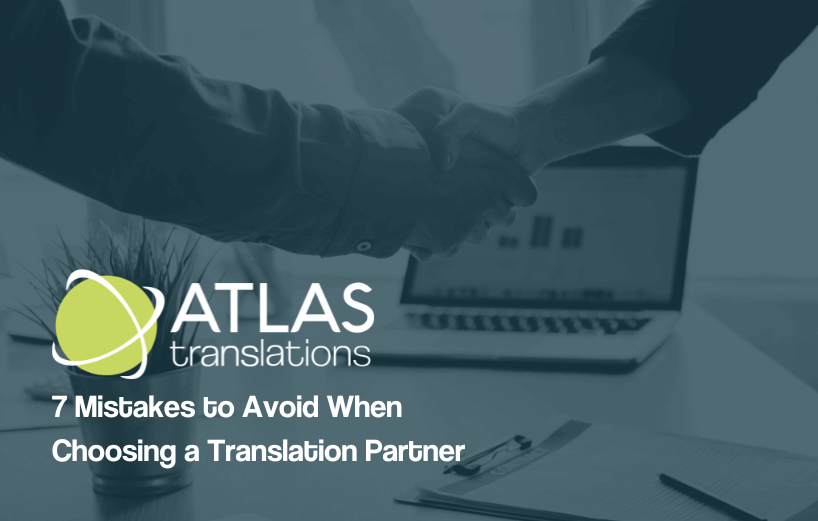
Not all translation providers are created equal. And if you’ve ever dealt with a dodgy one, you’ll know just how painful that lesson can be. Maybe you’ve had to explain a mistranslation to a client. Maybe an embarrassing blunder made its way into your website. Or maybe a critical piece of legal text was fumbled because the translator didn’t fully understand the verbiage. Whatever the case, it’s not a situation you want to repeat. Luckily, this week’s blog is chockablock with helpful hints on choosing the right translation partner!
If you’re in the market for a reliable translation partner—one who can help you avoid mistakes while communicating with clarity and confidence—look no further than Atlas Translations. Call us at +44 (0)1727 812725 or send an email to team@atlas-translations.co.uk
1. Choosing a Translator Without Sector-Specific Experience
A translator might be fluent in your language—but are they fluent in your industry?
From pharmaceutical packaging to legal contracts and technical manuals, specialised content demands subject knowledge. It’s not enough to know the language; your translation partner also needs to understand the terminology and context, avoid mistakes, and the consequences of getting it wrong.
Look for translators who have:
- Sector-specific qualifications or experience
- Familiarity with industry terminology
- A portfolio or references in your field
At Atlas Translations, every project is matched with a translator with hands-on, sector-specific knowledge in the relevant field. No guesswork. No jargon roulette.
2. Going for the Cheapest Option
We get it—budgets matter. However, when it comes to translation, the cheapest option can end up being the most expensive.
Poor translations damage reputations, delay projects, and sometimes even spark legal issues. What looks like a bargain could result in mistakes, costing you corrections, causing lost business, or worse, public embarrassment.
Cheap translation can result in:
- Mistranslated content that needs redoing
- Compliance risks in regulated sectors
- Missed deadlines due to poor planning
Quality translation is an investment in your brand’s credibility. And let’s face it, “cheap and cheerful” doesn’t exactly inspire trust in a medical report or a courtroom document.
3. Forgetting About Localisation
Language is just the beginning. What about tone, cultural references, idioms, or even layout considerations for different character sets?
Straight word-for-word translation might work for your grocery list, but customer-facing content needs more. That’s where localisation comes in—tailoring your message for the region and audience you’re targeting.
Atlas works with native speakers who don’t just translate your words; they translate your intent—so your message lands with the right impact every time.
4. Overlooking Quality Assurance Steps
The best translators are human (yay!). But humans miss things (boo!). Translation partners can make mistakes—that’s why a robust quality assurance (QA) process isn’t a nice to have—it’s essential.
Skipping proofreading or not asking for a second pair of eyes to review your work can let typos, mistranslations, or formatting errors slip through the cracks.
Atlas builds QA into every project. From double checks to formatting reviews, it’s all part of the process—not an afterthought.
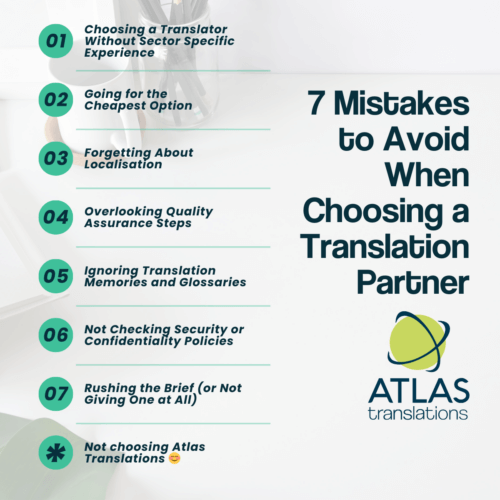
5. Ignoring Translation Memories and Glossaries
If you’re producing a steady stream of multilingual content, consistency is key.
Translation memories (TMs) and glossaries help keep things consistent across projects, saving you time and money while keeping your terminology spot on. They’re especially useful for regulated industries, recurring product descriptions, and brand-specific language.
Benefits of using TMs and glossaries:
- Faster turnaround times on repeat content
- Consistent messaging across teams and languages
- Fewer errors and rewrites
Atlas maintains client-specific TMs and glossaries, so your translations stay aligned, even if the project scope changes.
6. Not Checking Security or Confidentiality Policies
Would you email sensitive legal or medical documents to a stranger without a second thought? Hopefully not, but you’d be surprised by how often it happens in the translation world.
Translation often involves handling confidential material. If your provider isn’t using secure file transfer methods or signed confidentiality agreements, it’s a red flag 🚩
Atlas takes confidentiality seriously, with robust data protection policies, secure platforms, and NDAs as standard.
7. Rushing the Brief (or Not Giving One at All)
Think of your brief as the sat nav for your project—skip it, and you might still get somewhere, but probably not where you intended.
A good translation needs context. Who’s the target audience? What tone should it take? Is it going on a website, in a report, or in a product manual?
A good brief should include:
- Intended audience and platform
- Desired tone and terminology
- Project format and deadline
Atlas asks the right questions up front and guides you through the process, making sure nothing gets lost in translation—literally.
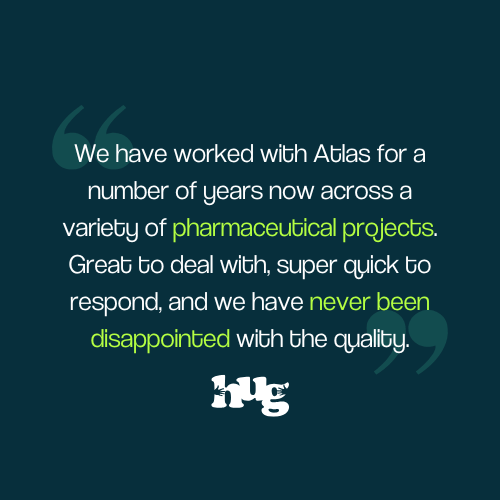
Summary
Choosing the right translation partner isn’t just about getting the job done—it’s about avoiding mistakes and making sure it’s done right.
From sector expertise and cultural fluency to secure handling and quality assurance, avoiding these seven mistakes can save you time, money, and stress. And with the right team on your side, translation becomes less of a headache and more of a strategic win.
Contact Us
We’d love for you to contact Atlas Translations! We’re always here for a chat or to answer questions!
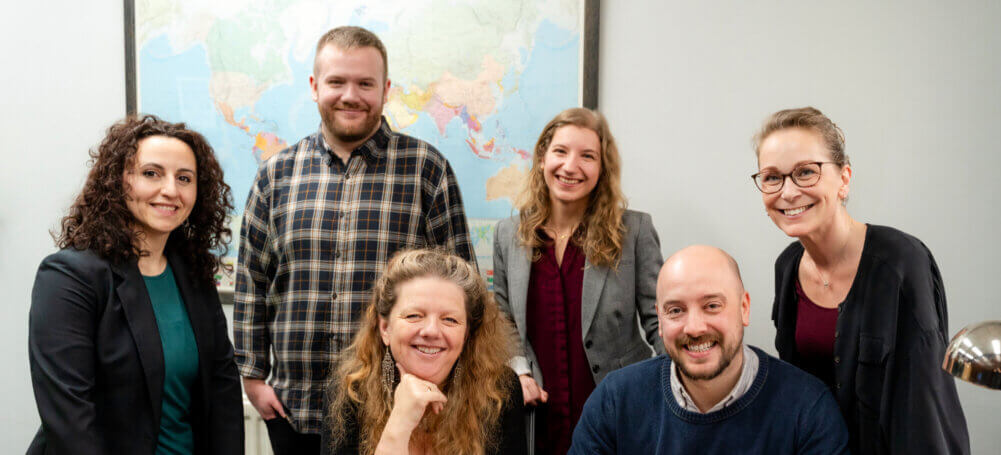
Call us on +44 (0)1727 812 725 or email us at team@atlas-translations.co.uk to let us know what you need. We respond quickly to all enquiries!
If you’d like to meet us face to face, learn more about our translation and language services, or deliver documents, please email or call us ahead of time to arrange a meeting.
Use the Live Chat option during UK working hours to ask us any questions. You’ll chat with a real, live human—we’re a bot-free zone! Just click the little icon at the bottom right of your screen to start chatting with us.
If you need a quick quote, we have a handy Get a quote button located at the top of our website where you can get an estimate for your needs.
Can I Trust Atlas Translations?
Yes, you can! But if you’re after something official with links, here you go:
Atlas Translations holds two ISO certifications — ISO 9001:2015 (Quality Management) and ISO 17100:2017 (Translation Services).
If the project is highly confidential, we can sign a non-disclosure agreement (NDA) for added peace of mind.
Are you wondering if we’re up to date on privacy? We registered with the Information Commissioner’s Office (ICO) over 20 years ago and have always placed a high importance on data protection.
You can read more about our commitment to quality here.
Atlas Translations prides itself on providing fast, friendly, and high-quality language services. But don’t just take our word for it—see what our clients are saying about us.
We’re also on TrustPilot, and you can read our reviews here.
Global Voice, Local Touch
If you’re looking for some top tips for partnering with Atlas Translations, we have some top tips to share! We answer 25 of our clients’ most frequently asked questions, ranging from typesetting queries to discussing reference materials.
Click to download Global Voice, Local Touch
